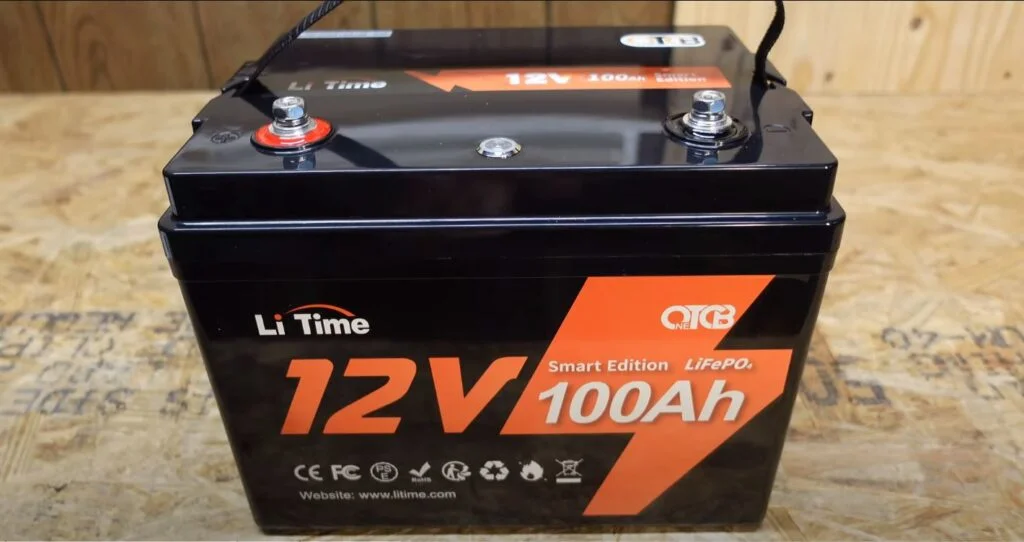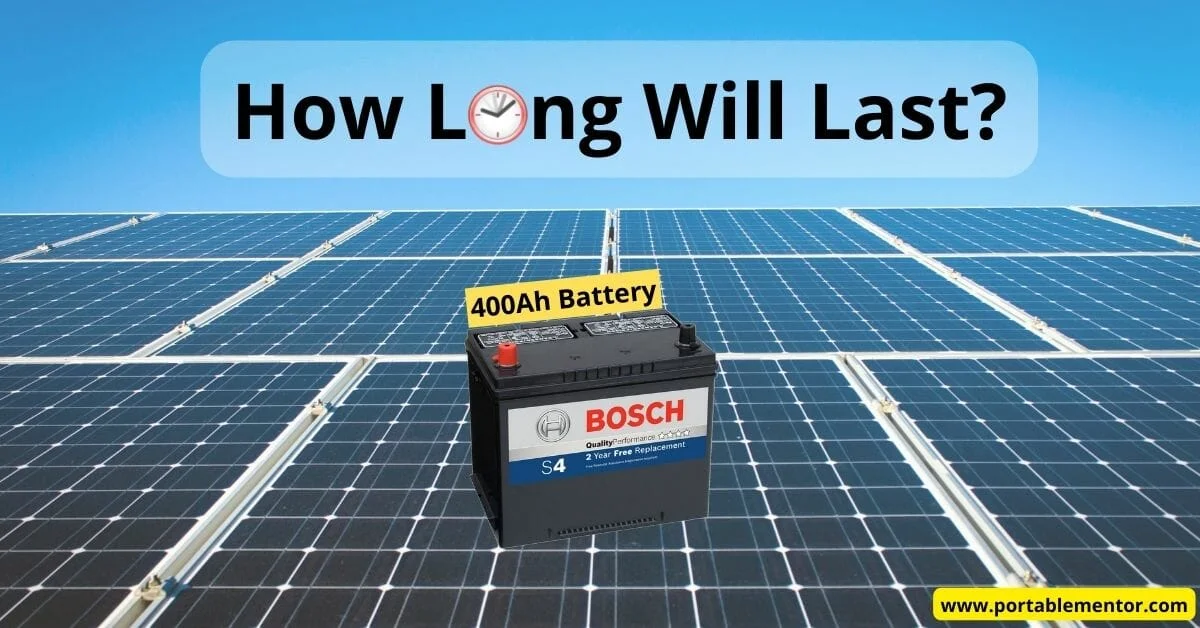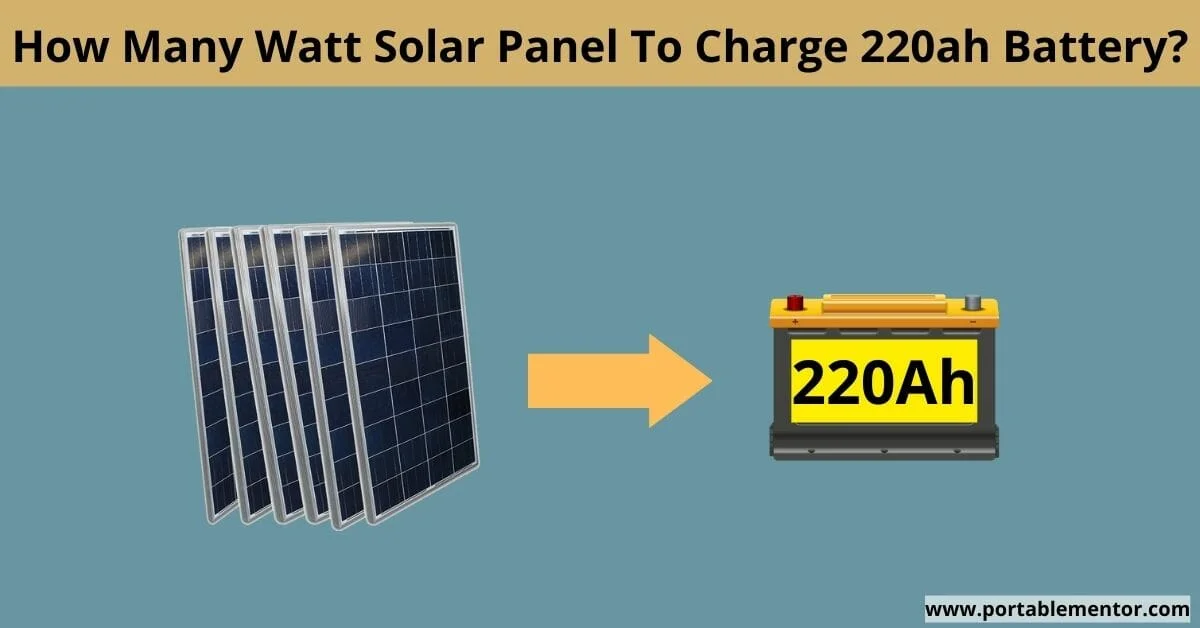How long will your battery last? find out with our easy-to-use battery runtime calculator.
Battery runtime calculator
Note: Use our solar panel size calculator to find out what size solar panel you need to recharge your battery in desired hours.
Calculator assumptions
- This calculator will take into account the efficiency of an inverter (90%) and the efficiency of the battery discharge (lead acid: 85%, Lithium: 95%).
Limitations of this calculator
- Please note that the calculator doesn't include Peukert's law, temperature, and battery age in its calculations, which can affect the battery's discharge time. But it can give you a close estimated runtime.
How to use our battery runtime calculator?
1. Enter battery capacity in amp-hours (Ah): If the battery capacity is mentioned in watt-hours (Wh), Divide the watt-hours by battery voltage (V) to find out the battery capacity in Ah.
2. Enter your battery voltage (V): Do you have a 12v, 24, or 48v battery? For a 12v battery, ENTER 12.
3. Select your battery type: For lead acid, sealed, flooded, AGM, and Gel batteries select "Lead-acid" and for LiFePO4, LiPo, and Li-ion battery types select "Lithium".
4. Enter your battery's state of charge (SoC): SoC of a battery refers to the amount of charge it has relative to its total capacity. A fully charged battery will have 100% SoC.
5. Enter your battery's recommended depth of discharge (DoD) limit: Battery depth of discharge (DoD) measures the used capacity of your battery from its total capacity.
Lead-acid, AGM, sealed, flooded, and Gel batteries should not be discharged below 50%, while only lithium (LiFePO4, LiPo, and Li-ion) batteries can be safely depleted to 100%. Ask your manufacturer or have a look on at your battery's specs sheet for a more accurate value.
6. Is your load connected through an inverter? Select yes, if you're using an inverter to run the AC appliances. Or select no, if the appliance is directly connected to the battery without an inverter (which is usually not recommended).
6. Enter total output load in watts: If your appliance has an output load mentioned in amps, convert it into watts by multiplying the amps by the given volts of appliance.
Enter "Calculate Battery Runtime" button to get the result.
2 ways to calculate battery runtime

Ready for calculation? Let's dive in! I'll share 2 methods to estimate battery life from basic (least accurate) to advanced (most accurate).
Formula 1
Formula: Battery capacity in Ah ÷ Output amps (A)
Or,
Battery runtime = Battery capacity in watt-hours (Wh) ÷ Total Output in watts
Accuracy: Lowest
Dividing the battery capacity (in amp-hours - Ah, or milliamp-hours - mAh) by the output load (in amps - A, or milliamps - mAh) is the least accurate way to calculate the battery runtime.
Because it doesn't take into account for battery's discharge efficiency rate, recommended depth of discharge, and state of charge.
Mostly, the battery capacities are mentioned in amp-hours (Ah) but our appliances in watts. Which makes it confusing in the first place. You can convert the battery capacity in watt-hours or the appliance input capacity into watt-hours to make it work.
Battery capacity in watt-hours = Battery Ah × Battery voltage
Output load in load in amps = Load in watts ÷ volts
Example
Let's say you have:
- Battery capacity: 50Ah
- Output load: 10A
To calculate 50ah battery lifetime using this formula, divide 50ah by 10a.
50ah ÷ 10a = 5 hrs
According to this formula, a 50ah battery will run a 10-amp load for 5 hours.
formula 2
Formula: Battery runtime = (Battery Ah × Battery volts × discharge efficiency × DoD limit × SoC × inverter efficiency) ÷ load
Accuracy: Highest
This formula takes into account for battery's discharge efficiency rate, recommended depth of discharge, and state of charge.
Based on directscience.com data:
- Lead-acid batteries discharge efficiency ≈ 80 − 85%
- Lithium-ion batteries discharge efficiency ≈ 90 − 95%
Example
Let's continue with the previous example and find out the most accurate runtime estimate.
Let's say you have:
- Battery capacity: 50Ah
- Battery voltage: 12V
- Battery type: Lead acid
- Battery SoC: 100% (fully charged)
- DoD limit: 50%
- Running load through an inverter? Yes (inverter efficiency - 90%)
- Output load: 120 watts (10 amps @ 12v)
Now let's put this info into our 2nd formula.
(50ah × 12v × 85% × 50% × 100% × 90%) ÷ 120 watt
(229.5) ÷ 120 watt = 1.9 hours
Turns out, in actuality a 50ah battery will run a 10A load for about 1.9 hours.
That's it! Easy right?
Now let's have a look at why these methods only give estimates, not 100% accuracy.
Why none of these methods guarantee 100% accuracy?
Battery runtime formulas aren't fully accurate due to the complexity of battery discharge, as there are other factors that can impact discharge time. Which are...
1. Batteries discharge unevenly
If you discharge a battery too quickly, it won't provide as much energy as the label claims, known as Peukert's law. This is because more energy turns into heat instead of powering devices when discharged quickly.
The effect of Peukert's law on Lead-acid vs Lithium: Lead acid batteries lose energy faster when discharged quickly, while lithium batteries can be discharged at up to 50% of their capacity without losing power.
Here's an example of how discharge time affects the usable capacity of 100ah lead acid battery.
| Usable 100ah lead acid battery capacity | Hours of discharge |
|---|---|
| 100ah | 20 hours |
| 90ah | 10 hours |
| 87ah | 8 hours |
| 82ah | 6 hours |
| 80ah | 5 hours |
| 70ah | 3 hours |
| 60ah | 2 hours |
| 50ah | 1 hour |
Related Post: Battery Charge And Discharge Rate Calculator: C-Rating To Amps
2. Battery life cycles matter
Batteries can only be charged and discharged for a limited number of times, which is called the life cycle.
Lead-acid batteries last for a few hundred cycles if they are maintained properly. Lithium batteries can last for thousands of cycles. But as batteries are used and charged more, they hold less charge capacity.
After about 500 cycles, a lead-acid battery will lose about 20% of its capacity, while a lithium battery will 20% of its capacity after about 2000 cycles. Check your battery's data sheet for more accurate numbers.
3. Effect Of Temperature On Batteries performance
Temperature affects how well your battery works. Usually, batteries work best when it's between 68°F and 77°F (20°C to 25°C).
A higher or lower temperature (than what’s recommended) will affect the battery’s performance. A rule of thumb is “an increase or decrease in temperature to 77ºF or 25º C can reduce battery performance by 50%”.
To get the most out of your battery, keep it at the right temperature by using a cooling system or putting it in a spot where it won't get too hot or too cold.
That's it!
Now I'll show you tables and charts showing battery runtime for different voltage (v) and capacities under various loads.
how long Does a 12v battery last?
Here's a chart on how long 12v different amp-hour (Ah) batteries will last running a 10-watt load.
| Battery Size (Ah) | Runtime (Lead-acid) | Runtime (Lithium) |
|---|---|---|
| 6ah | 3 hrs | 6 hrs |
| 7ah | 3 hrs | 7 hrs |
| 12ah | 6 hrs | 12 hrs |
| 18ah | 8 hrs | 19 hrs |
| 20ah | 9 hrs | 21 hrs |
| 36ah | 17 hrs | 37 hrs |
| 50ah | 23 hrs | 52 hrs |
| 60ah | 28 hrs | 62 hrs |
| 70ah | 32 hrs | 73 hrs |
| 80ah | 37 hrs | 83 hrs |
| 100ah | 46 hrs | 104 hrs |
| 120ah | 56 hrs | 124 hrs |
| 150ah | 70 hrs | 155 hrs |
| 200ah | 93 hrs | 207 hrs |
summary
- A 12v battery will last anywhere between 5-20 hours while running a load.
how long will a 24v battery last?
Here's a chart on how long will a 24v different capacity lead acid and lithium (LiFePO4) battery will last running a 100 watts of AC load.
| 24v Battery Capacity | Battery Type | Est. Runtime on 100-watt appliance |
|---|---|---|
| 100ah | Lead-acid | 9 hours |
| 200ah | Lead-acid | 18 hours |
| 300ah | Lead-acid | 28 hours |
| 400ah | Lead-acid | 37 hours |
| 100ah | Lithium (LiFePO4) | 21 hours |
| 200ah | Lithium (LiFePO4) | 41 hours |
| 300ah | Lithium (LiFePO4) | 62 hours |
| 400ah | Lithium (LiFePO4) | 83 hours |
summary
- 24v lead-acid battery will last between 10 to 30 hours while running a 100-watt AC load.
- 24v Lithium (LiFePO4) battery will last between 20 to 80 hours while running a 100-watt AC load.
Full article: How Long Does A 24 Volt Battery Last?
How long will a 48V battery last?
Here's a chart on how long will 48v different amp-hours (Ah) battery will last on a 500-watt load.
| 48v battery capacity | Battery type | Est. Runtime (hrs) |
|---|---|---|
| 100 | Lead acid | 4 hrs |
| 200 | Lead acid | 7.5 hrs |
| 300 | Lead acid | 11 hrs |
| 400 | Lead acid | 15 hrs |
| 600 | Lead acid | 22 hrs |
| 100 | Lithium (LiFePO4) | 8 hrs |
| 200 | Lithium (LiFePO4) | 16.5 hrs |
| 300 | Lithium (LiFePO4) | 25 hrs |
| 400 | Lithium (LiFePO4) | 33 hrs |
| 600 | Lithium (LiFePO4) | 50 hrs |
Summary
- 48v lead acid battery will last anywhere between 4 hours to 22 hours while running a 500-watt load.
- 48v lithium battery will last anywhere between 8 hours to 50 hours while running a 500-watt load.
how long 70ah battery last?
summary
- 70ah battery will last anywhere between 15 hours to 15 minutes running different appliances.
Full article: How Long Will 70Ah Battery Last? (In Real World Conditions)
how long will 110ah battery last?
Here are charts on how long will a 12v 110ah lead acid and lithium battery will last on load.
12v 110ah lead acid battery
| Appliance Power Required | 110ah Battery Runtime |
|---|---|
| 50 watt | 10 hours |
| 100 watt | 5 hours |
| 150 watt | 3 hours |
| 200 watt | 2.5 hours |
| 300 watt | 1.5 hours |
| 400 watt | 1.2 hours |
| 500 watt | 1 hour |
| 1000 watt | 30 minutes |
Summary
- 12v 110ah lead-acid battery with a 50% depth of discharge limit will last between 10 hours to 36 minutes.
12v 110ah lithium battery
| Appliance Power Required | 110ah Battery Runtime |
|---|---|
| 50 watt | 23 hours |
| 100 watt | 11 hours |
| 150 watt | 7.5 hours |
| 200 watt | 5.5 hours |
| 300 watt | 4 hours |
| 400 watt | 3 hours |
| 500 watt | 2.5 hours |
| 800 watt | 1.4 hours |
| 1000 watt | 1 hour |
summary
- 12v 110ah lithium (LiFePO4) battery with a 100% depth of discharge limit will last between 23 hours to 1 hour.
how long will 300ah battery last?
| Appliance Power Required | 300ah lead-acid Battery Runtime |
|---|---|
| 50 watt | 28 hours |
| 100 watt | 14 hours |
| 150 watt | 9 hours |
| 200 watt | 7 hours |
| 300 watt | 4.5 hours |
| 400 watt | 3.5 hours |
| 500 watt | 2.5 hour |
| 800 watt | 1.5 hours |
| 1000 watt | 1.3 hours |
| 1200 watt | 1 hour |
| 1500 watt | 55 minutes |
| 2000 watt | 40 minutes |
| 3000 watt | 25 minutes |
Summary
- A 12v 300ah lead acid battery will last anywhere between 28 hours to 20 minutes.
how long will 600ah battery last?
Here are charts on how long will a 12v 600ah lead acid and lithium battery will last on load.
12v 600ah lead acid battery
| Appliance Power consumption | 600ah lead-acid Battery Runtime |
|---|---|
| 50 watt | 55 hrs |
| 100 watt | 28 hrs |
| 200 watt | 14 hrs |
| 300 watt | 9 hrs |
| 400 watt | 7 hrs |
| 500 watt | 5.5 hrs |
| 600 watt | 4.5 hrs |
| 800 watt | 3.5 hrs |
| 1000 watt | 2.5 hrs |
| 1200 watt | 2 hrs |
| 1500 watt | 1.5 hrs |
| 2000 watt | 1.2 hrs |
| 3000 watt | 50 minutes |
summary
- A 12v 600ah lead acid battery will last anywhere between 50 hours to 50 minutes running different watt appliances.
12v 600ah lithium battery
| Appliance Power consumption | 600ah lithium Battery Runtime |
|---|---|
| 50 watt | 125 hours |
| 100 watt | 62 hours |
| 200 watt | 31 hours |
| 300 watt | 21 hours |
| 400 watt | 15.5 hours |
| 500 watt | 12 hours |
| 600 watt | 10 hours |
| 800 watt | 7.5 hours |
| 1000 watt | 6 hours |
| 1200 watt | 5 hours |
| 1500 watt | 4 hours |
| 3000 watt | 2 hours |
summary
- A 12v 600ah lithium battery will last anywhere between 120 hours to 2 hours running different watt appliances.
How long will a 150ah battery last?
Here are charts on how long will a 12v 150ah lead acid and lithium battery will last on load.
12v 150ah lead acid battery
| Appliance Power Required | 150ah Battery Runtime |
|---|---|
| 50 watt | 14 hours |
| 100 watt | 7 hours |
| 150 watt | 4.5 hours |
| 200 watt | 3.5 hours |
| 300 watt | 2 hours |
| 400 watt | 1.5 hours |
| 500 watt | 1.2 hours |
| 600 watt | 1 hour |
Summary
- 12v 150ah lead acid battery will last anywhere between 14 hours to 1 hour running different watt appliances.
12v 150ah lithium (LiFePO4) battery
| Appliance Power Required | 150ah Battery Runtime |
|---|---|
| 50 watt | 31 hours |
| 100 watt | 15 hours |
| 150 watt | 10 hours |
| 200 watt | 7.8 hours |
| 300 watt | 5 hours |
| 400 watt | 3.5 hours |
| 500 watt | 3 hours |
| 600 watt | 2.5 minutes |
| 800 watt | 2 hours |
| 1000 watt | 1.5 hours |
| 1200 watt | 1.3 hours |
| 1500 watt | 1 hour |
Summary
12v 150ah lithium battery will last anywhere between 30 to 2 hours running different watt appliances.
how long will 200ah battery last?
summary
- 12v 200ah lead acid battery will last anywhere between 15 hours to 40 minutes running different appliances.
- 12v 200ah lithium battery will last anywhere between 34 hours to 1 hour running different appliances.
Conclusion
Calculating battery runtime is a complex process, and there is no one-size-fits-all formula. The accuracy of the results depends on several factors, including battery age, temperature, load, and other external factors.
While our calculator and mentioned formulas can provide a rough estimate, they should not be solely relied upon. It is essential to understand the limitations of these methods and factor in additional variables to ensure that the battery runtime is accurately estimated for the intended use case.


